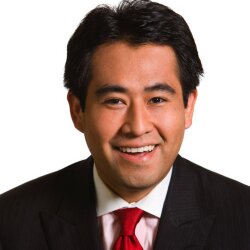By Israel Ortega
InsideSources.com
America may offer some of the best healthcare in the world. But doctors’ appointments are still too hard to make. Certain prescription medicines are too expensive. Prices are obscure. And finding the proper care and coverage is confusing, making shopping around almost impossible. Inflation has exacerbated all these burdens, and each one falls especially hard on America’s Hispanic community.
Latinos are more than three times as likely as Whites to be uninsured. They disproportionately suffer chronic conditions, have less access to care, and experience worse health outcomes. Latino families’ lower incomes make them more vulnerable to high drug costs, and they even have less access to telehealth services.
In Washington, problems like these are held up as reasons for the government to exert more power over the healthcare system. But in every case, it’s patients who lack the power and bear the brunt of poorly designed public policy. None of this is lost on Latinos, many whose families emigrated from countries where government-controlled healthcare hurts the quality of life.
Rather than empowering Washington, true healthcare reform should empower everyone else: patients, families, workers and small businesses, doctors, and nurses. We don’t need single-payer schemes like the “public option.” We need a Personal Option for healthcare, especially reforms to expand access to care, lower prices, end surprises and shore up safety nets for those most in need.
Everyone shares these aspirations. But only reforms that empower patients with more cost certainty and control over their care can deliver them. Government control drives prices upward, like college tuition or hospital bills. It also restricts access, as in the rationing of care and intolerable wait times in nations with single-payer health systems.
By contrast, consumer empowerment and competition spur quality improvements and drive prices down. Look at how affordable televisions and cell phones are today, despite being more technologically advanced than ever. It has nothing to do with businesses’ greed or compassion — it’s purely about the incentives they face when consumers have choices and competitors are free.
The Personal Option health reform platform would establish those incentives in the healthcare system.
First, that means expanding Americans’ access to tax-free health savings accounts — which now only 10 percent of Americans can get — and then broadening the categories of healthcare expenses the health savings accounts can pay for.
Second, the COVID-19 emergency showed how well healthcare can be delivered remotely. It also showed how much better the Food and Drug Administration can serve patients by streamlining drug approval processes and allowing the use of “off-label” prescription therapies. Rather than “going back” to the old rules from before the pandemic, Congress should make these COVID-era reforms permanent.
Next, as we empower patients to seek and pay for care however it best suits them, we should encourage healthcare providers to compete with those consumers in new and innovative ways.
The government should not limit the number of hospitals or prohibit doctors and nurses from owning them themselves. Congress should allow Americans to access prescription medicines approved by other nations we trust. And states should reduce regulatory barriers so medical professionals can deliver care across state lines, including via telehealth.
Congress should allow employer groups, trade associations and nonprofit membership organizations to offer discount health insurance plans to their members — just like large businesses do. And everyone should be allowed to purchase healthcare plans tailored to their needs, such as short-term renewable plans that typically cost less than half as much as traditional insurance and are popular with plan holders.
Finally, in this environment of innovation and competition, Congress should restore today’s overgrown and fraud-prone Medicaid program to its original mission as a safety net for the truly vulnerable. And let’s give those vulnerable low-income families more choice, control and dignity by giving them health savings accounts funded with some of the same Medicaid money that today goes directly to insurance companies.
The Latino community disproportionately suffers from the current system’s access, pricing and transparency problems. They stand to gain disproportionately from personalized health reforms that put patients and doctors, instead of the government, in charge of our medical decisions.
For Latinos, and all patients, it’s time for American healthcare to go from being the best in the world to becoming the best it can be.
Israel Ortega is a spokesman for The LIBRE Initiative. He wrote this for InsideSources.com.




